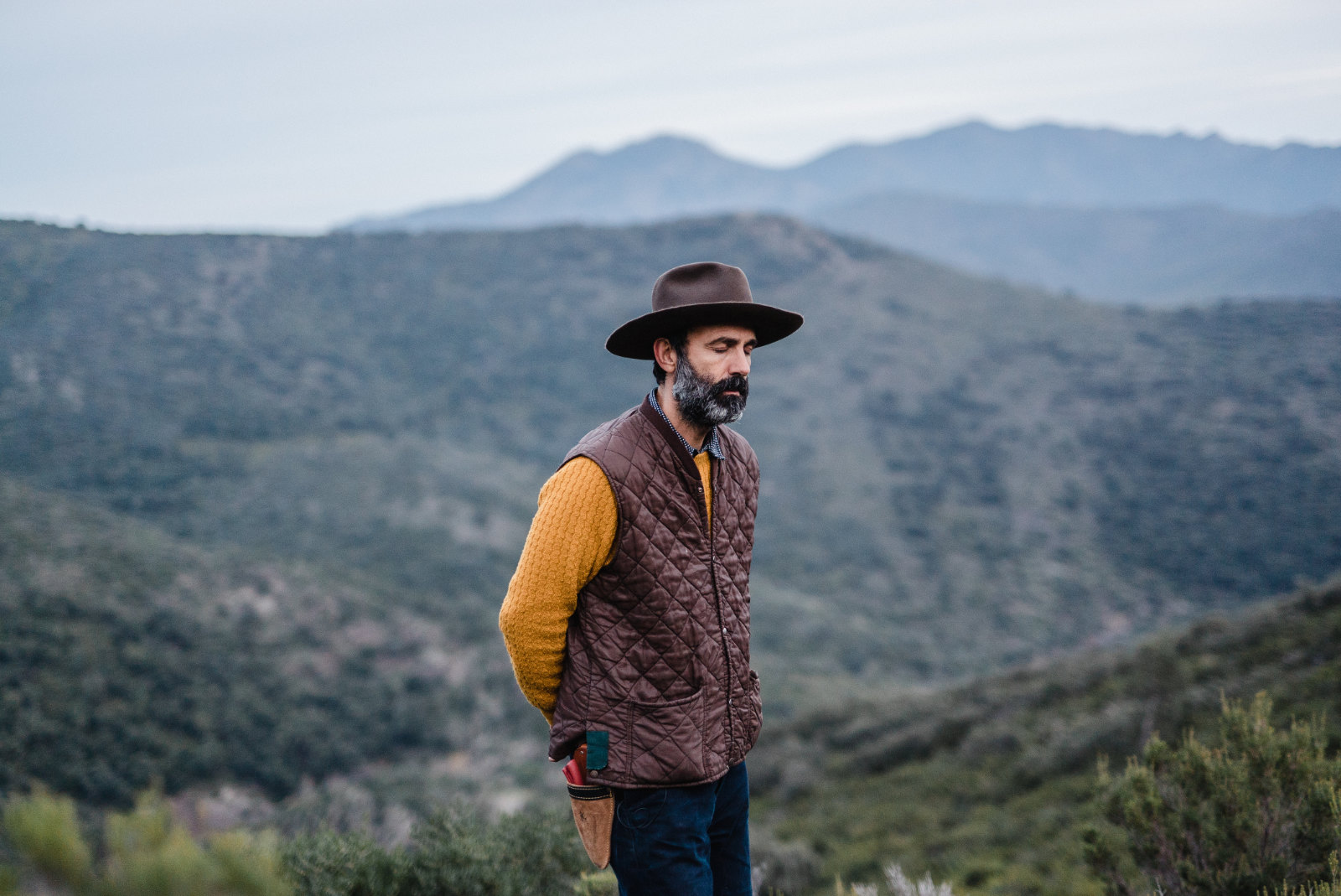
BEAUTY Jody Miller talks to Ernesto Collado, and finds out how the Spanish actor, writer and director returned to nature and an ancestral legacy to create Bravanariz
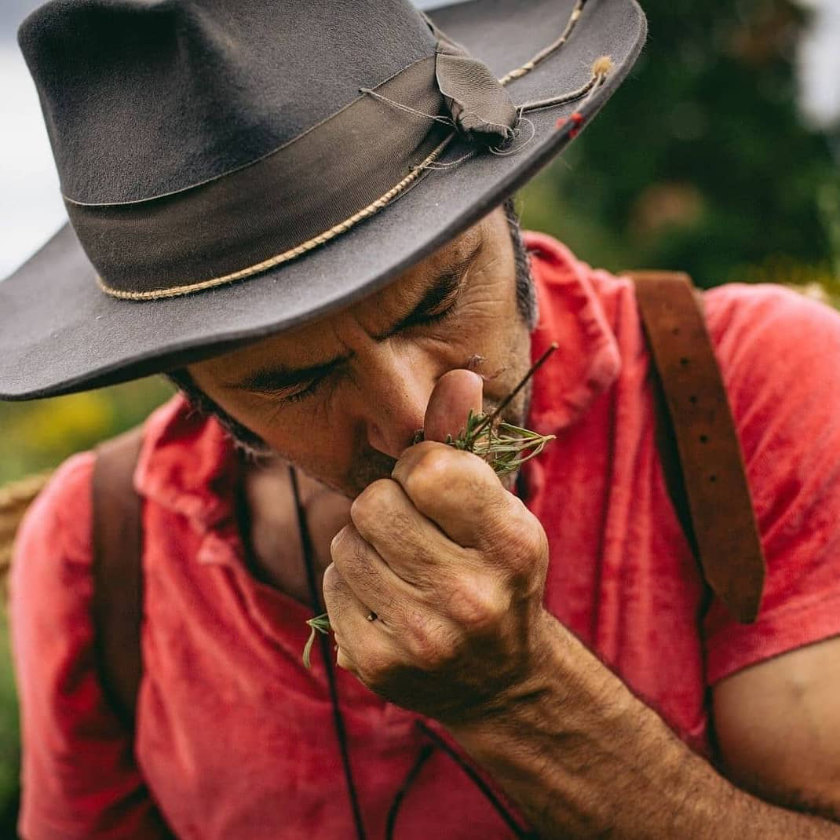
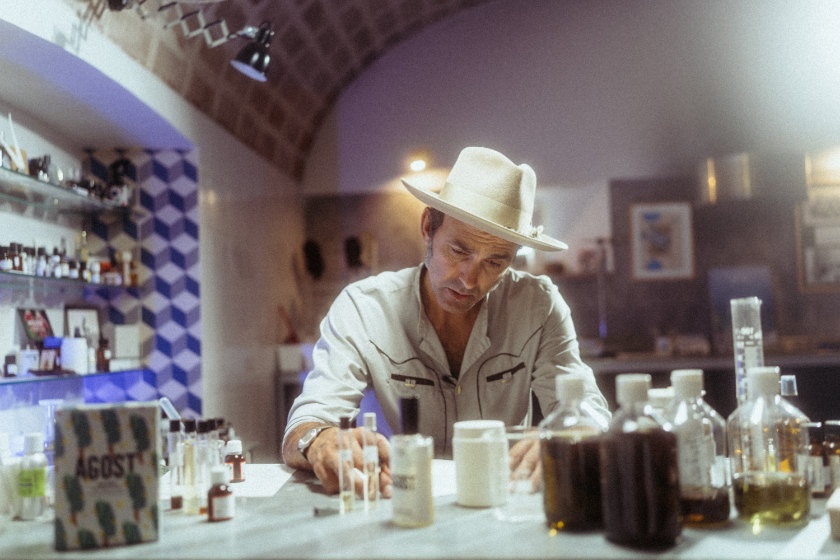
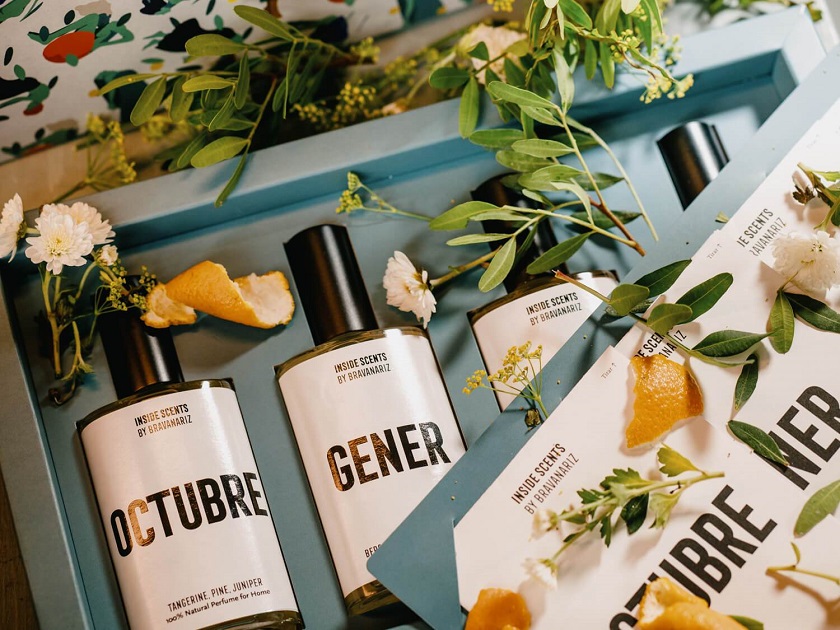
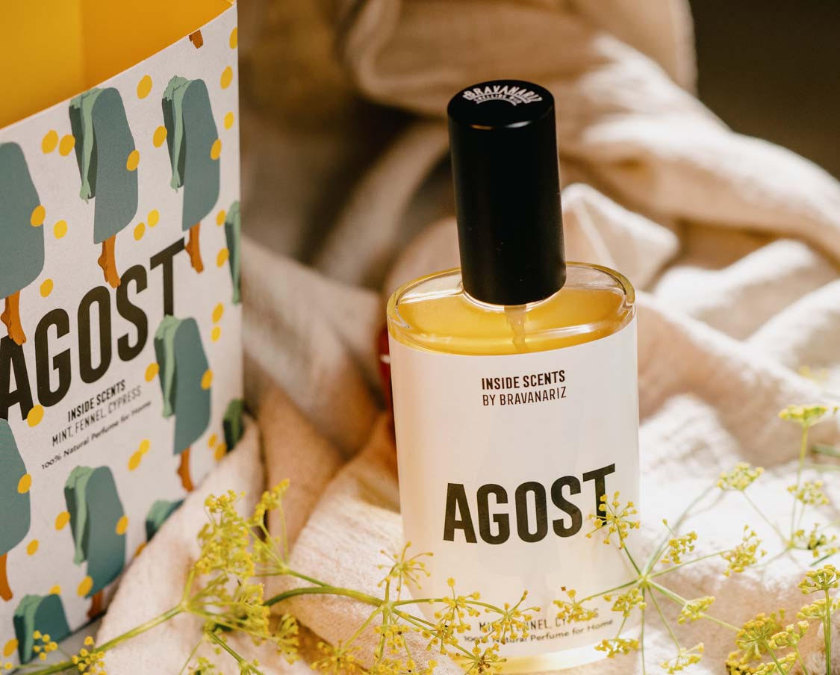
Like all species of the animal kingdom and homo sapiens, Ernesto Collado was born with a nose. That protruding, yet essential organ of scent is also integral to our respiratory system. Air flows in and out, while olfactive sensations tempt, tingle and torment. Collado was born both the grandson of a legendary nose and an inauspicious and rare recipient of a tragic, though temporary, loss of smell (more on that later). The essential orifice to all animals, gentle and wild, has given him great gifts and profound grief. The gift reigns triumphant.
Born in Barcelona, Ernesto Collado is the grandson of legendary master perfumer José Collado Herrero—the nose behind early 20th-century iconic fragrances Tabu and Canoe for Dana, and Hechizos de Sevilla or Maderas de Oriente for Myrugia. As the founder of a distillation and rectification process of natural Spanish oils sold to international perfumers, Collado Herrero operated distillation plants throughout Spain.
While the young Collado lost the elder Collado Herrero at a young age, the memories and cherished time spent in nature left an irrevocable stamp, despite young Collado becoming a successful and recognizable figure of Spanish theatre, film and television. But Collado admits he always swam against the tide. Like life itself, the tide takes you in a circle—a place where beginning and end blur and collide. While an important fixture of Spain’s urban creative culture, Collado was no fan of the limelight and felt a disconnect from his soul’s true longing: to be immersed with nature—wild and free, creating olfactory works of art, as did his legendary ancestor.
Bravanariz sets a new precedent in natural perfumery. All essential oils and raw materials used in their formulations are pure extracts that come from native plants grown in the Mediterranean region of Spain using artisanal processes. Some are harvested from plants collected in the wild and distilled by in-house, while others come from local or national producers. Completely free from any type of synthetic fixation, no colour or density correctors derived from petroleum.
We had the great privilege to speak in depth with Collado from his studio and workshop in the Costa Brava region of northeastern Spain about everything from his grandfather’s legacy, to his guided botanical walks, and how smell brings out the animal in all of us.
Lucire: As a modern perfumer how did your grandfather inspire you?
Ernesto Collado: My grandfather, apart from being a perfumer, was a natural essential oil producer. He believed that synthetic molecules would never overcome the ‘delicious complexity of nature,’ as he always said. Quality and honesty were his obsessions, as well as a never-ending curiosity for nature and life. In this sense, he is a lighthouse for me.
In what way is your process or philosophy a departure from his?
My grandfather was a nose with an outstanding olfactory sensibility and a highly trained chemist with a long and successful professional career behind him. My background is absolutely different and my creation method, based on artistic practices, drinks from intuition and emotions more than from scientific methods and academic knowledge. I guess that not coming from the perfumery industry gives me a wider and fresher view. You can be braver [Bravanariz, literally means brave nose] in your creations when not having any prejudices. I can go beyond the self-imposed boundaries of perfumery. Of course, there’s a risk, but I never choose the easiest way and I have always swum against the current.
How is Bravanariz unique from other niche fragrance brands?
To begin with, we are the only real 100 per cent natural niche perfumery brand. But to me, this is not the most relevant thing. It’s a must when you want to capture the essence of a natural landscape. What makes us really unique is the fact that most of the raw materials (tinctures and hydrolates) are produced by us from wild harvested plants from our Mediterranean landscapes. As [an] alcoholic base, we use plant tinctures instead of neutral unodorant alcohol, and to lower the alcoholic grade we use pure hydrolates instead of tap water. That makes all our fine fragrances absolutely exceptional. The other aspect of our uniqueness as natural perfumers is the complexity and high sophistication of our fragrances. Their performance in terms of evolution and persistence is quite outstanding. Every fragrance takes you to a fascinating trip into nature—full of surprises. And to end with, the goal and final objective of our products is also different. We want to help people reconnect with nature through smell. Our fine fragrances are not only made to seduce others, but to re-conquer yourself. They smell great and make you feel better.
Can you discuss the similarities and differences between creating a character for stage or film and creating a fragrance?
Wow! That’s a tough question. And a good one, because I never asked myself such a thing. I guess, creating a character, for me, has to do with passing ideas through the body. Giving flesh and movement to a concept. The character, before I write it, first appears in my imagination as a vehicle to express an idea (or a bunch of ideas, sometimes contradictory ones). But I always start working physically, starting on a special way of walking or sitting on a chair. A way of breathing. Simple and physical things that transform the way you place yourself in the world, and luckily, the way you feel (and think). For example, I always searched for the way my characters would dance, and what type of music they would listen to (even when no dancing or music was involved in the play). With my olfactory creations, it’s somehow the other way around. The starting point is very concrete. A piece of nature. A particular landscape, and the feelings and emotions that this landscape have on me. But the result is something absolutely ethereal and invisible. It’s true that the effects of this intangible molecular combination create true and very physical reactions, and especially with aromas, very strong emotions. In the end, everything has to do with emotions. I want is to touch people’s hearts. To move them, no matter how.
You suffered from an ailment that affected your sense of smell. How did you relate with that to create an olfactory brand that connects with people on many levels?
During the two years and a half that I suffered from phantosmia (a very rare kind of anosmia, that feels like an olfactory hallucination. A smell created by my brain that does not exist in reality), my life became poorer and poorer every day. My perception of life was incomplete. I realized how vital the sense of smell was for us humans, and also how much we neglected it. The sense of smell is our most primitive, instinctive and animal sense. It reminds us of the fact that we are just animals. And nobody wants to remember that. Everything we do, from the moment we wake up until the moment we go to sleep, is an attempt to forget our animal condition. And here is where our disconnect with nature begins. I learned that probably there was no better vehicle than the sense of smell to reconnect with our environment and our emotions.
Tell us about your manufacturing process from plant to bottle.
All the tinctures and hydrolates we use in our fragrances are made with wild-harvested plants that we gather in our landscapes. Before we started the project, we worked with Sandra Saura Mas, a biologist–environmentalist intimately bound to our region and its nature parks. She designed a sustainable wild-harvesting protocol for us. This protocol (I think we are the only perfumery brand in the industry that has it) serves as a guide for all our harvesting actions and ensures the biodiversity and natural balance of our environment. First thing I do, when arriving to the harvesting area, is asking for permission to the landscape. When leaving the place, I always say thank you. There’s nothing mystic about it. It’s just a matter of gratitude. Back in our warehouse, we elaborate the tinctures (macerating the plants in organic alcohol) and the hydrolates (by steam distillation of the plants). Actually, we only distil three essential oils, from the most common plants in our region: rosemary, Spanish lavender and fennel.
Unlike most perfumes, you do not use the standard alcohol base. How do you get around this?
Tinctures are essential in our creations. We don’t work with neutral, odourless perfumery alcohol as a base. And we never lower the alcoholic grade with tap water. Instead, we do it with tincture combinations and pure distilled hydrolates to lower the alcoholic grade. The result is an already highly aromatic alcoholic base (sometimes I surprise myself thinking that it’s already a great eau de cologne!). But the best part has to come. On top of that, we add the natural essential oils that complete the formulation. This makes our fine fragrances absolutely unique and exceptional.
Was this the catalyst you needed to begin this fragrant journey?
This is how Bravanariz began. With the strong will to help people make this reconnection with nature in an intimate, emotive and powerful way. When we say that we follow our nose, we mean that we follow our intuition and our hearts. Bravanariz is an open invitation to do so, to discover how life really smells.
Tell us about your guided botanical walks on your farm.
When we started the project, the best way for us to show how we did what we did, was by inviting our retailers to experience it for themselves. It was a commercial strategy. They came to the Empordà to be part of our olfactory capture process, wild harvesting and distilling. Working in some of the most beautiful and wild natural corners of the region, I explain my passion for nature, the philosophy of the brand and about a different way to relate to the plant kingdom and its aromas. It worked incredibly well. We never thought about those walks as a business area, but the people who came were so enthusiastic, and they so strongly encouraged us to make it an open and shareable olfactory experience, that we decided to convert it into one of our regular services.
Where do most of the attendees come from?
People come from all over the world. Spain, of course, but also Poland, France, Hungary, Germany, Holland, Canada, Japan, Chile, Colombia, Brazil and the US. After two to three hours of walking and harvesting with me, discovering the local plants and their properties, as well as the secrets of the plant kingdom and the landscape around us, we distil everything in our mobile lab. Then we have a natural wine tasting and a delicious mar i muntanya meal surrounded by vineyards, not only to smell but to drink and eat the landscape. After coffee, we elaborate on the olfactory capture of our walk, practising some of the traditional perfume-making processes (tinctures, hydrolates). After seven hours with us, people leave the place being [better] humans and more [in tune with the] landscape, with the perfume of their experience in a bottle. It’s so nice to see their faces when they realize that when we said ‘capturing the aromatic soul of the place,’ it was not a poetic licence. Then they clearly understand what Bravanariz is doing. I love that moment. •
Jody Miller is a correspondent for Lucire and co-founder of Lucire Rouge.
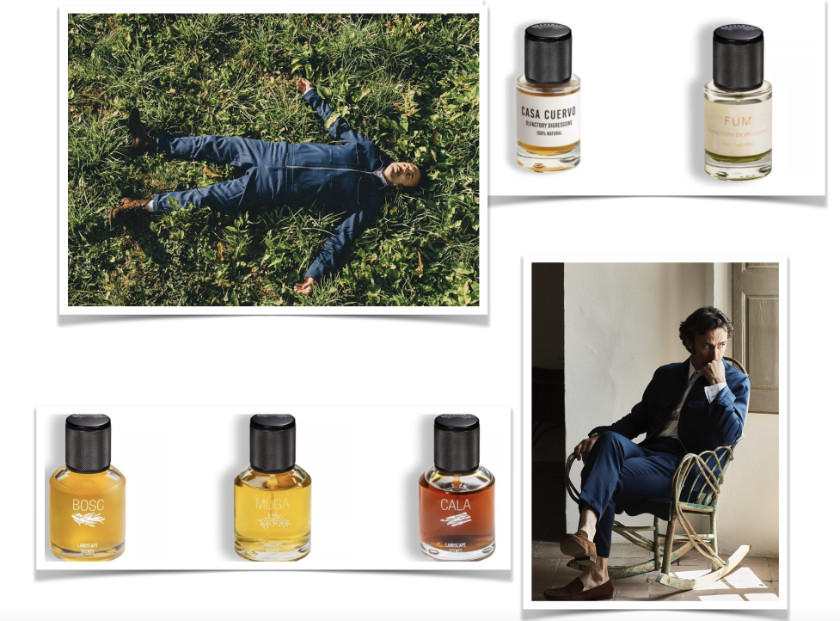
Related articles hand-picked by our editors
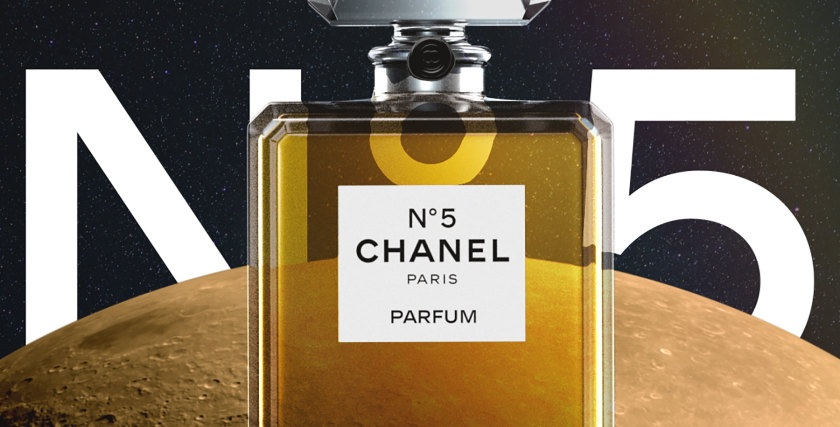
The unforgettable first century of Chanel No. 5
The world’s most famous fragrance celebrates 100 years since it was conceived. We look at its history and how it came back with more than a little help from star power
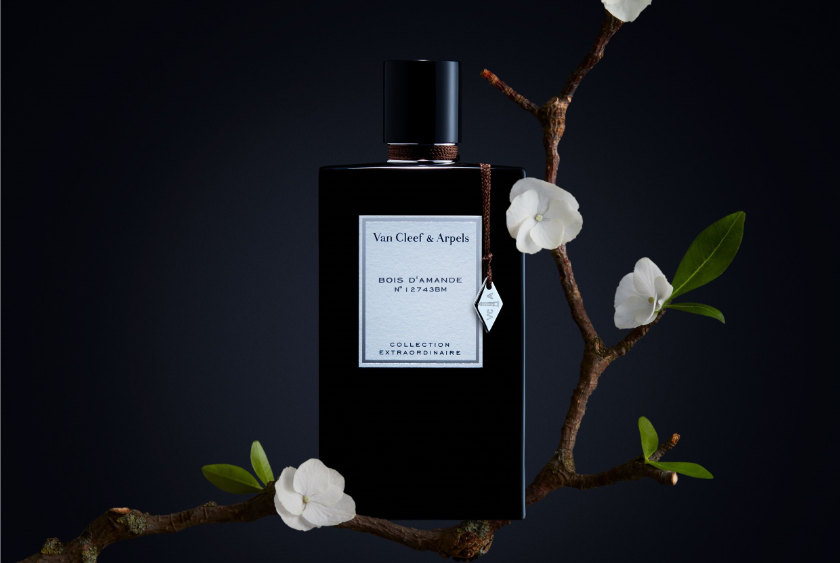
Putting yourself first
Our beauty selection to start off 2021 is all about making you feel your best, from lush lashes to a woody fragrance
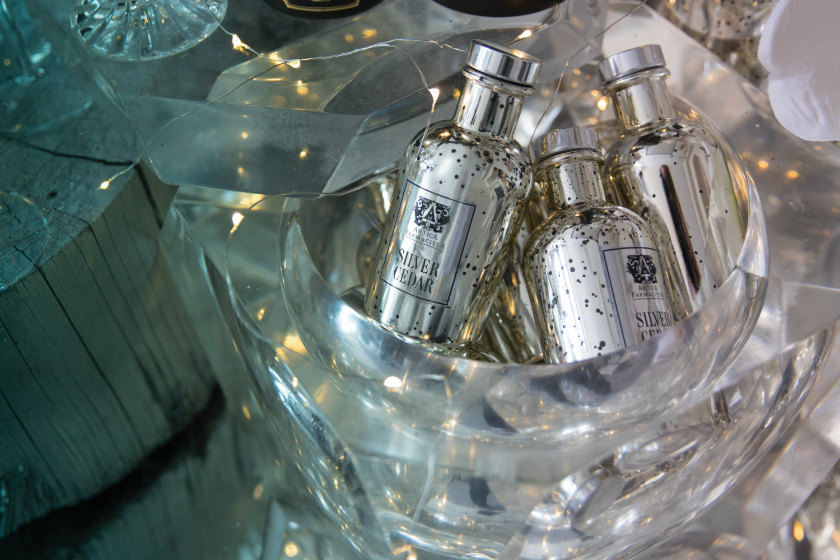
Scents of positivity
Lola Cristall and the Lucire team look at a selection of scents for the summer and the festive season